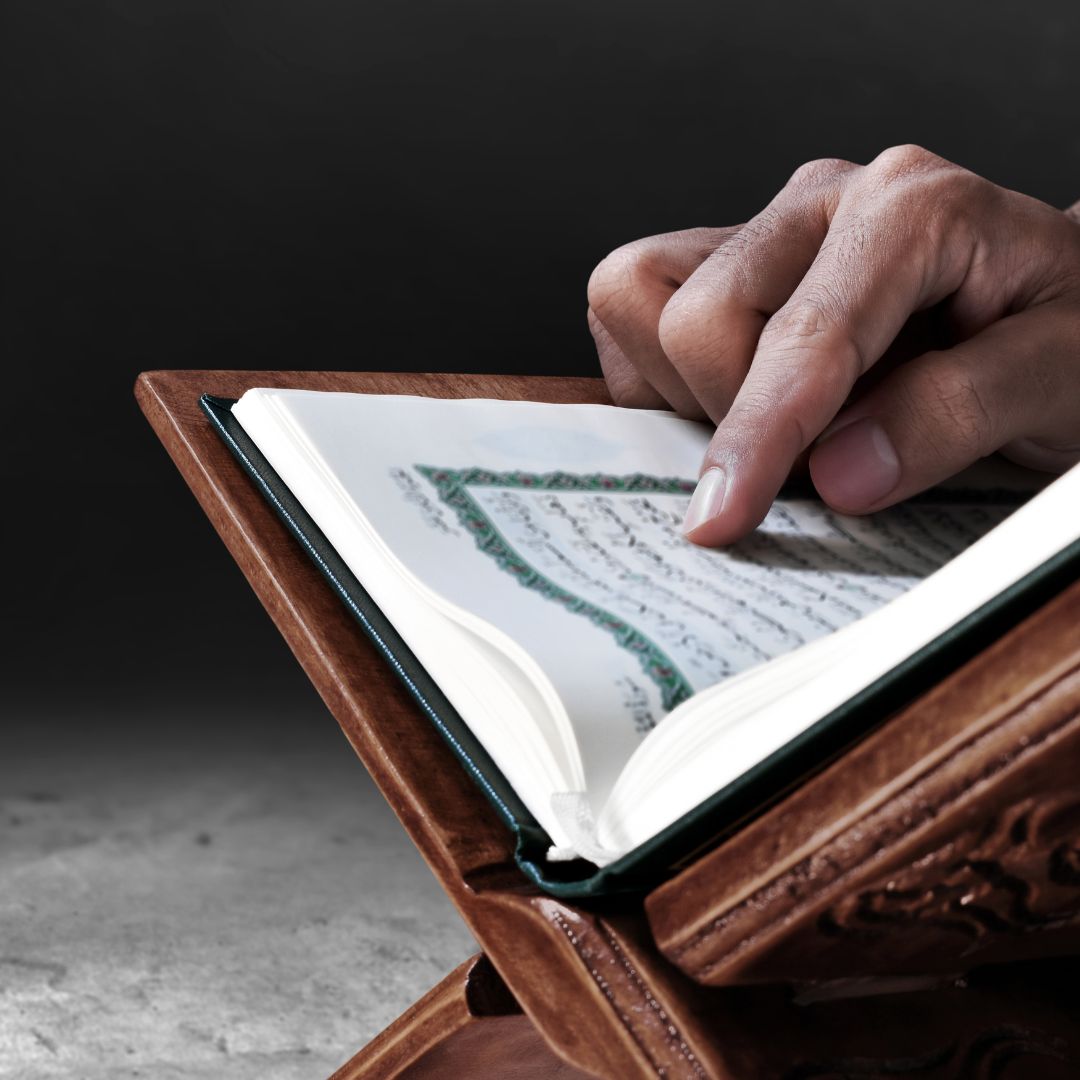Blog
Why Muslims Pray 5 Times a Day

Introduction
One of the most frequently asked questions about Islam is, “Why do Muslims pray 5 times a day?” This daily practice, known as Salah or Salat, is a central pillar of Islam and is obligatory for all practicing Muslims. The act of praying five times a day may seem rigorous or excessive to those unfamiliar with the faith, but it holds deep spiritual, psychological, and physical benefits. More than just a religious duty, it is a discipline that connects the believer with God (Allah), purifies the soul, and brings structure to daily life.
Understanding Salah in Islam
Salah is the second of the Five Pillars of Islam, after the testimony of faith (Shahada). Muslims believe that prayer is a direct link between the worshipper and Allah. It was established during the Miraj (Ascension) of Prophet Muhammad (PBUH) when Allah directly commanded him to instruct his followers to pray five times a day.
These five daily prayers are:
- Fajr: The dawn prayer
- Dhuhr: The noon prayer
- Asr: The afternoon prayer
- Maghrib: The sunset prayer
- Isha: The night prayer
Each prayer has a designated time, and Muslims are required to perform them at these specific intervals to fulfill their religious obligation.
The Spiritual Reasons Behind Praying 5 Times a Day
At the core of Islamic prayer is the concept of submission to the Creator. Salah is an act of devotion that allows Muslims to express their gratitude, seek forgiveness, and remember the greatness of Allah. It reinforces Taqwa (God-consciousness) and humility. Praying five times daily ensures that a Muslim’s day is punctuated with moments of reflection and remembrance of God.
Moreover, regular prayer helps Muslims develop discipline and structure in their lives. It reminds them that no matter how busy or stressful life becomes, taking a few moments to reconnect with the Divine is essential.
Psychological and Emotional Benefits
Beyond its spiritual importance, praying five times a day has numerous psychological and emotional advantages. Studies in both Islamic and non-Islamic contexts have shown that regular spiritual practices such as prayer can reduce stress, anxiety, and feelings of loneliness. The act of facing the Qibla (direction of the Kaaba in Mecca), performing ritual ablution (Wudu), and engaging in physical movements such as bowing and prostrating contributes to a meditative state of mind.
This mindfulness during prayer can improve emotional well-being and promote inner peace. Many Muslims report that after prayer, they feel calmer, more focused, and spiritually uplifted, regardless of what they were experiencing before the prayer.
Physical and Health Aspects of Daily Prayer
The physical movements in Salah are also beneficial. The repeated actions of standing, bowing, prostrating, and sitting can be compared to a form of light exercise. These movements enhance circulation, improve flexibility, and help maintain joint health. Over the long term, the daily ritual can contribute to better posture, muscle tone, and even digestion.
Additionally, the regularity of prayer encourages good hygiene through the act of Wudu, which requires washing specific parts of the body before each prayer. This not only ensures cleanliness but also revitalizes the body and refreshes the mind.
Building a Connection With the Muslim Ummah
Another powerful reason why Muslims pray five times a day is the sense of unity and belonging it fosters. When Muslims gather in mosques to perform the daily prayers, especially the Friday congregational prayer (Jumu’ah), they experience a unique sense of community. This practice breaks down social barriers and reminds everyone of their equality before God.
Even when prayed individually, knowing that millions of Muslims around the world are praying at the same time creates a spiritual bond with the global Ummah (Muslim community). This shared ritual strengthens faith and solidarity across borders.
A Way of Life, Not Just a Ritual
For Muslims, Salah is not a ritual performed out of habit or cultural tradition. It is a conscious and sincere act of worship meant to transform their lives. The daily prayers are designed to keep believers grounded in their faith and aware of their responsibilities as human beings. The Qur’an says in Surah Al-Ankabut (29:45): “Indeed, prayer prohibits immorality and wrongdoing, and the remembrance of Allah is greater.”
This verse underscores the ultimate purpose of prayer: to remind believers to live righteous and ethical lives. Regular prayer inspires moral conduct and encourages believers to strive for spiritual excellence.
Conclusion
Understanding why Muslims pray five times a day requires looking beyond the surface of religious ritual and into the deeper meanings of faith, discipline, and connection. For Muslims, prayer is not a burden but a gift—a daily reminder of God’s presence and a powerful tool for spiritual growth. It fosters inner peace, strengthens community bonds, and provides a framework for leading a purposeful life.
Whether viewed from a spiritual, psychological, or social perspective, the five daily prayers in Islam represent a profound and holistic approach to living a mindful, faithful, and balanced life.
Blog
Jab Woh Dil ky Qareeb hoty hyn Naat Lyrics
This Beautiful Naat “Jab Woh Dil ky Qareeb hoty hyn” is written by Mohtram Munawwar Badayuni. In this post you will get Naat Lyrics in English.
More Naat: Sunty Hain k Mehshar me New Tazmin Lyrics
Jab Woh Dil ky Qareeb in English
Jab Woh Dil Ke Qareeb Hotay Hain
Woh Bhi Aalam Ajeeb Hotay Hain
🌟🌟🌟
Faizyab Un Ke Aastanay Se
Kaise Kaise Ghareeb Hotay Hain
🌟🌟🌟
Jo Habeeb-e-Khuda Ke Ho Jayein
Woh Khuda Ke Habeeb Hotay Hain
🌟🌟🌟
Jin Ko Hoti Hai Un Ki Deed Naseeb
Un Ke Kaise Naseeb Hotay Hain
🌟🌟🌟
Door Reh Kar Bhi Un Ke Deewane
Un Se Kitne Qareeb Hotay Hain
🌟🌟🌟
Un Mareezon Ka Pochhna Kya Hai
Jin Ke Woh Khud Tabeeb Hotay Hain
🌟🌟🌟
Khush Naseebi Adab Sikhati Hai
Be-Adab Bad Naseeb Hotay Hain
🌟🌟🌟
Ae Munawwar Ghareeb Us Dar Ke
Naam Hi Ke Ghareeb Hotay Hain
🌟🌟🌟
SRF NaatLyrics.online aik behtareen aur mukhtalif online platform hai jo sirf aur sirf naat lyrics ke liye banaya gaya hai. Yeh website un logon ke liye ek qeemti resource hai jo sahi, mukammal aur asaan alfaaz mein naats parhna chahte hain.
Yahan aapko Urdu, Roman Urdu aur English mein mashhoor naat khwaanon ki naats milti hain, jise har umr aur har maqam ka shakhs asaani se samajh sakta hai.
NaatLyrics.online ky CEO Muhammad Abdullah ka maqsad naat ki asli rooh aur izzat ko barqarar rakhte hue logon tak saheeh maloomat pohanchana hai.
Blog
By the wise Qur’an وَٱلْقُرْآنِ ٱلْحَكِيمِ

Introduction: The Divine Wisdom of the Qur’an
In Surah Yaseen, verse 2, Allah Almighty swears by the Qur’an Al-Hakeem—the Wise Qur’an. This profound declaration emphasizes that the Qur’an is not an ordinary book, but one full of divine wisdom (Hikmah). It is revered as the heart of the Qur’an, a Surah that encapsulates the essential teachings and guidance for humanity in a precise and impactful way.
The Qur’an: A Unique and Eternal Revelation
Unlike any other book on Earth, the Qur’an is a timeless, divine revelation that surpasses all human-made knowledge and literature. It is not based on assumptions or man-made philosophies. It is Al-Hakeem, meaning full of wisdom, flawless in its guidance, and eternal in its truth.
Previous Revelations and the Role of Prophets
Before the Qur’an, Allah (Subhanahu wa Ta’ala) sent down several scriptures to various nations through His chosen prophets. Over 124,000 prophets (Ambiya) were sent across the world with the purpose of guiding mankind. These included scriptures such as the Torah (to Musa عليه السلام), the Zabur (to Dawood عليه السلام), and the Injil (to Isa عليه السلام).
Some people accepted the truth, while others questioned or rejected it. Many even distorted or misinterpreted the earlier scriptures. However, the Holy Qur’an remains unchanged, preserved in its original form, serving as the final and complete guidance for all of humanity.
Qur’an Al-Hakeem: Philosophically, Ethically, and Practically True
The Qur’an stands unmatched in its depth and clarity. It is philosophically sound, ethically enlightening, and practically implementable in all aspects of life. From the basics of human nature to advanced sciences, countless subjects are mentioned in the Qur’an, all of which point toward one direction: the path of righteousness, success, and connection with Allah.
Endless Knowledge (Uloom) in the Qur’an
The Qur’an is not just a book of laws or stories—it is a treasure of knowledge. Many sciences (Uloom) are hidden within its verses. However, to unlock its deeper meanings and divine truths, we must not only read the Qur’an but reflect, understand, and implement its guidance in our daily lives.
Every Word is Divine and True
Since the Qur’an is the actual word of Allah, it is impossible for any falsehood to exist within it. Each verse holds truth and serves as a guide to a meaningful, purposeful, and successful life. It is a mercy for mankind, a light in the darkness, and a rope of salvation for those who seek the path of Allah.
Conclusion
The statement “By the Wise Qur’an” reminds us that the Qur’an is not only a book of guidance but also of divine wisdom. Every Muslim must recognize its significance, read it regularly, and strive to follow its teachings. Surah Yaseen is a powerful reminder of this truth—it is a spiritual heart that nourishes the soul and strengthens faith.
Blog
The Role of Sabr (Patience) During Umrah: An Islamic Perspective
Umrah might not be obligatory, but it is one of the most profound acts of worship. This pilgrimage can transform your life. It allows you to be closer to the Almighty and return to the right path. It gives you a chance at redemption, as forgiveness of sins is one of the most prominent benefits of Umrah. No doubt it teaches you a lot of moral lessons as well. The role of Sabr (patience) during Umrah is undeniable.
The Umrah journey is undoubtedly filled with divine mercy and blessings. But it is also challenging. Umrah can be physically exhausting and emotionally demanding, and the only way to have a memorable pilgrimage is to practice patience and gratitude. If you are going to be among the fortunate Muslims going on pilgrimage this year and have booked umrah packages from Atlanta, you might want to learn how patience is an essential virtue of the pilgrimage. Here is what you must know about the role of Sabr during Umrah.
Concept of Sabr (Patience) in Islam
According to Islam, Sabr is not just an act of waiting, suffering, or passive endurance. It is a state of active resilience, spiritual focus, and self-restraint. The Holy Quran mentions the concept of Sabr at least ninety times. This shows its significance. In the Holy Quran, Allah Almighty says:
“Indeed, Allah is with the patient.”
(Surah Al-Baqarah, 2:153)
Muslims don’t see Sabr as a virtue only. It is a form of worship for them, as no one would want to miss out on the chance to become beloved to the Almighty and to experience his closeness. No doubt this virtue has immense rewards. Not only does it teach you to maintain your dignity, calm, and faith during the times of hardship or trials. But it also teaches you to perform the Umrah rituals perfectly without any mistakes or complaints.
Importance of Sabr (Patience) During Umrah
We are all aware of the Umrah’s spiritual significance. It brings utmost peace to the pilgrims’ hearts and souls, but we must not forget that it can also test our limits. From long travelling hours to massive crowds and scorching heat, there are numerous uncomfortable aspects of this journey that we must not forget. Every stage of Umrah can be tiring and demands patience. Let’s discuss why patience is essential during the Umrah journey.
- Navigating Physical Hardships
If you have received your Umrah package and will be making the pilgrimage soon, it is time to learn how to navigate the physical hardships. Everything requires some physical effort, from performing Tawaf and Sa’i to standing in long queues for access to water, transport, and at the restaurants.
Let’s not forget that you will most probably be jetlagged and fasting while performing your pilgrimage rituals. This adds to the physical exhaustion. Pilgrims may face foot blisters, heat exhaustion, or lack of rest. You will undoubtedly learn a different level of spiritual elevation if you practice patience during these challenging times.
- Managing Emotional and Social Struggles
The Hajj and Umrah crowds are some of the biggest in the world. These crowds are also diverse, with people from all backgrounds. In such huge crowds, you can not expect everyone to have the same manners, morals, and patience.
There is no denying that you will meet many impatient and inconsiderate people in such crowded places. Therefore, you cannot wholly avoid misunderstandings and delays. Even someone stepping on your foot or you stepping on someone else’s can be very frustrating, especially when you are already exhausted. But make sure that you don’t lose patience. Keep this Hadith of Prophet Muhammad (SAW) in mind.
“The strong is not the one who overcomes the people by his strength, but the strong is the one who controls himself while in anger.”
(Sahih al-Bukhari)
- Responding to Delays and Uncertainties
There can be many delays and uncertainties during your trip. Travel plans may change without notice, and accommodations might not meet expectations. Also, there can be much confusion during the Umrah rituals or while booking different services. This is when you must learn about the importance of divine wisdom even in the delays and uncertainties. This will make patience a lot easier and even rewarding.
- Enhancing Spiritual Reward
As mentioned, Sabr is an act of worship for Muslims that Allah Almighty rewards. Therefore, practicing patience at the pilgrimage sites enhances your spiritual rewards. It becomes a form of dhikr for the Muslims. Here is a very reassuring and heartwarming Hadith of the Prophet (SAW).
“No fatigue, nor disease, nor sorrow, nor sadness, nor hurt, nor distress befalls a Muslim, even if it were the prick he receives from a thorn, but that Allah expiates some of his sins for that.”
(Sahih al-Bukhari)
Summing Up
The role of Sabr (patience) during Umrah is undeniable. This exceptional virtue can transform your whole pilgrimage experience and make it more memorable and rewarding. So, if you have started planning your pilgrimage with an Umrah travel agency, it is time that you start learning how you can be more patient during this journey. Learning about the importance and rewards of this virtue will motivate you to become more patient for the ultimate spiritual revival during Umrah.
-

 Blog8 months ago
Blog8 months agoSurah Muzammil
-

 Blog8 months ago
Blog8 months agoNazar Ki Dua
-

 Blog7 months ago
Blog7 months agoSurah Yaseen Read Online
-

 Blog6 months ago
Blog6 months agoEvil Eye Protection, Symptoms, Remedies & Removal?
-

 Blog6 months ago
Blog6 months agoSurah Yaseen Read Online
-

 Blog8 months ago
Blog8 months agoNazar Ki Dua In English Text
-
Blog8 months ago
Manzil PDF
-

 Blog7 months ago
Blog7 months agoHaunted House Cleaning with Paranormal Activity
